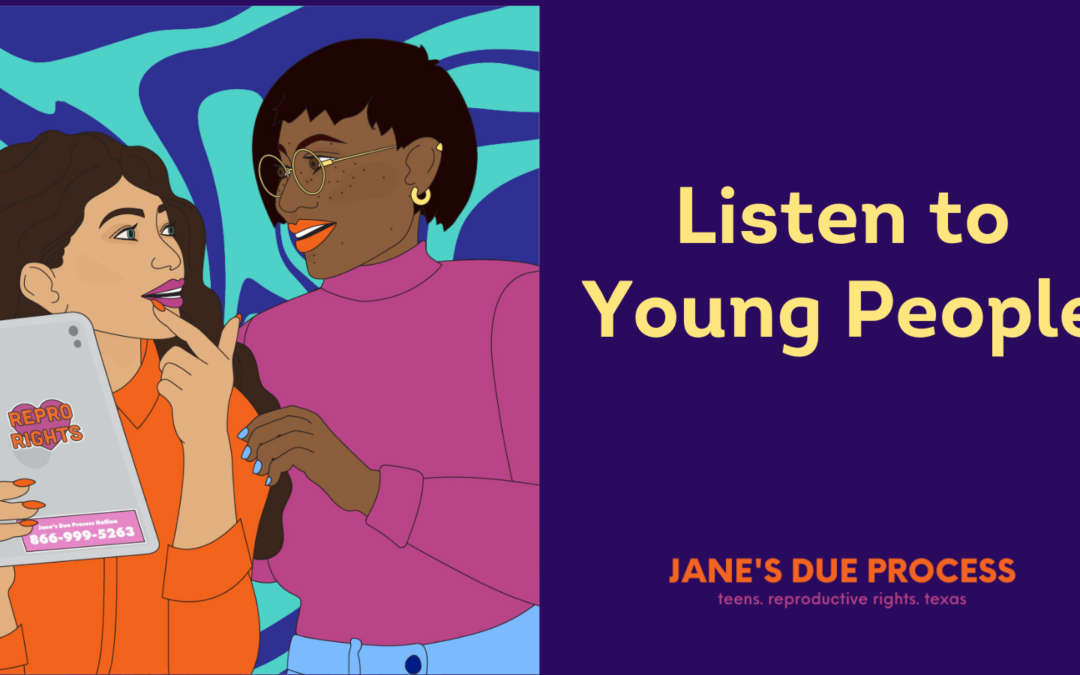By: HK Gray
I was sixteen when I was rushing to the hospital to give birth to my own little bundle of joy. I had meticulously done my birth plan, spent the whole nine months researching all parts of pregnancy, birth and postpartum care, but I didn’t realize that I was getting no input from other teen moms who had navigated giving birth about the possibility of facing stigma. Having input from other teens who had gone through this would’ve helped prepare me for the judgment I felt, but instead I was blindsided by the mistreatment and in my exhausted post birth state I didn’t have the energy to defend myself. We can’t control how people decide to treat us, but we can work on trying to have an empowering experience despite the treatment we might be faced with.
My birth was relatively easy with the whole process only taking four hours with thirty minutes of active labor. I ended up having my daughter at 37 weeks despite some preterm labor complications happening at 34 weeks, which I learned later is normal for teen parents. I had a wonderful OB/GYN (obstetrician and gynecologist) and nurse during my birth, but I still dealt with other medical professionals shaming me. Once I had made it to the recovery ward I had nurses and assistants dismiss the pain I was feeling, over-explain things I had already told them I understood and act as if I was a different from the other new parents. Some guests that came to see me in the hospital said that there was even a group of nurses that were gossiping about me, and when they checked in to visit me they were asked if they were there for “the young one.” One lactation specialist shamed me for not being able to produce as much breast milk as the “normal” aged mother and made me feel like because of my age I wasn’t going to be able to properly feed my daughter even though I just had a naturally low supply of breastmilk due to being anemic. This ultimately made me give up on trying to breastfeed altogether. It wasn’t until I had met with my OB/GYN at my six week postpartum appointment that I was told a low milk supply could be remedied with vitamins and eating foods that help with the production of breastmilk. By that point my milk had already dried up. With the stress of becoming a new mom and not having a huge support system I ended up rationalizing the huge lows of Postpartum Depression by telling
myself that the reason I wasn’t as fulfilled as other new moms was because it was supposed to be different for me since I was a teen mom. This reasoning was reinforced by people around me and medical professionals that treated me like I was an outsider in my own birth experience.
The stigma I felt was the product of personal bias which can have tragic consequences when it comes from within the medical field. Advocates for Youth’s Adolescent Maternal Mortality Rate research shows that young people from the ages 15 to 19 are twice as likely to die during childbirth than someone who gives birth in their twenties. This likelihood rises if the teen is also Black, Indigenous, or a person of color. These numbers show the terrifying reality that young people are not getting the same level of care and are dying because of it. It’s difficult to sit here and tell a pregnant teen that you have to plan to be potentially questioned, stigmatized and shamed during what’s supposed to be the happiest day of their life, but it’s a reality we have to face.
Pregnancy and birth are very intimate experiences that should be empowering, but how can it be like that when you’re stigmatized and given lesser care because of bias? Luckily there are different things that you can do that can make the process more centered around supporting you instead of shaming you. The first step is to get a nice pro choice OB/GYN. I say pro choice because every time I’ve gone to one that wasn’t I was shamed for having my child so young. Your OB/GYN is the most important person to have on your side. They’re going to be the ones you look to at every pregnancy appointment and in the delivery room. Don’t be afraid of looking around before deciding on one, and make sure to ask if they have any experience working with teen parents. Try to find one who is compassionate, understanding and able to take some time to answer any questions you might have. Another tip is to ask if they have any free programs for teen parents. Sometimes OB/GYNs that work with young parents offer free birthing classes and discounts for prenatal or postpartum needs.
There’s also the option of hiring a doula, someone who is trained to offer guidance during pregnancy and birth. A good doula makes sure that you’re getting treated fairly and is able to stick up for you when you’re not able to.
It’s best to make a checklist of all the requirements you need in a doula. You want to find someone who makes sense for you. This checklist can include things like wanting someone of the same ethnic background as you or trained in a specific birthing technique. The main thing you want to look for is a doula that was a teen parent themselves or has experience with navigating the stigma surrounding teens giving birth in the medical field. The Journal of Perinatal Education did a study that showed the difference between disadvantaged mothers who chose to receive pre-birth assistance with a doula vs ones that opted out. In the study it says, “Doula assisted mothers were four times less likely to have a baby with low birth rates, two times less likely to experience a birth complication involving themselves or their baby, and significantly more likely to initiate breastfeeding.” Having a doula has lots of benefits, and it’s something I wish I knew was an option when I was pregnant. It helps make sure you can have peace of mind knowing that there is someone in your corner who will make sure that you are not being treated unfairly during this exciting new part of your life.
Whether you decide on getting a doula or not it’s a good idea to create a birth plan that includes what to do in case you do get stigmatized and mistreated. This is important to plan for, and there’s a whole range of options on what to do. It can include asking for a different nurse, asking to either have the baby bedside or spend some time in the nursery for some alone time and even letting someone know that you’re willing to file a grievance with the state medical board if they continue to treat you unethically. Although these things can feel very uncomfortable, especially if this is your first time overseeing your own medical care without parental help, it’s important to remember that you should be able to feel dignified and respected while receiving prenatal care or postpartum care. I never asked for any of these things. I didn’t want to draw more attention to myself and figured that everything would be easier once I brought my baby home. Don’t make the same mistake, allow yourself to stand up for the care you and your little one are receiving.
Another option is skipping the hospital all together and deciding on a home birth. This is something you need to speak to your obgyn about to make sure that you’re eligible for since in order to have an at home birth you need to have a healthy pregnancy, and you cannot be pregnant with multiples. There’s an array of different pregnancy complications common with young parents, so it’s best to make sure all
throughout your pregnancy that you’re confirming if this is a viable option for you. A home birth typically has a licensed obstetrician or midwife with their team of nurses and doulas. It’s important to look around for the perfect team of healthcare professionals that are both qualified and supportive. Most people choose this option when they want a more natural birth without conventional medicines that are used in births at hospitals. If you and your doctor decide this is the best route for you it’s important to have a back up plan in case you have to be transferred to a hospital due to any complications that may arise during labor. This is an option that can take away some of the fears associated with hospitals or getting inadequate care since everything will be taking place in the comfort of your own home with health professionals that are present during your entire pregnancy.
Giving birth can be scary, especially knowing you might be doing it while facing stigma, but with proper planning and the right resources you can make the process less daunting. It’s important to remember that regardless of how you get treated when giving birth as a teen, you are deserving of the same care and commitment as any other new parent. Just because you decided to parent younger than the average person doesn’t mean you need to deal with inadequate, biased medical treatment.
About the Author:
HK Gray is an advocate for the criminalized and the homeless. She is an abortion storyteller and a proud single mom. She’s currently working with Jane’s Due Process in North Texas.



